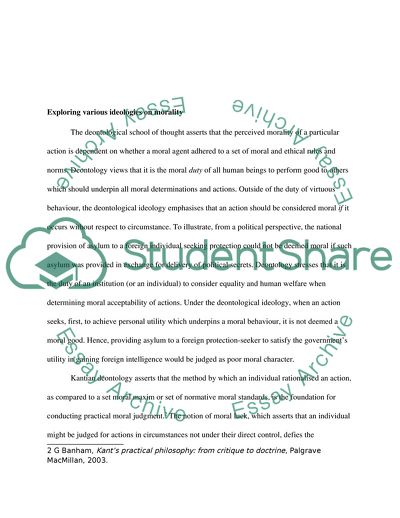Cite this document
(Is the Idea of Moral Luck Coherent Essay Example | Topics and Well Written Essays - 2500 words, n.d.)
Is the Idea of Moral Luck Coherent Essay Example | Topics and Well Written Essays - 2500 words. https://studentshare.org/philosophy/1866842-ethics-question-is-the-idea-of-moral-luck-coherent-if-so-how-if-not-why-not
Is the Idea of Moral Luck Coherent Essay Example | Topics and Well Written Essays - 2500 words. https://studentshare.org/philosophy/1866842-ethics-question-is-the-idea-of-moral-luck-coherent-if-so-how-if-not-why-not
(Is the Idea of Moral Luck Coherent Essay Example | Topics and Well Written Essays - 2500 Words)
Is the Idea of Moral Luck Coherent Essay Example | Topics and Well Written Essays - 2500 Words. https://studentshare.org/philosophy/1866842-ethics-question-is-the-idea-of-moral-luck-coherent-if-so-how-if-not-why-not.
Is the Idea of Moral Luck Coherent Essay Example | Topics and Well Written Essays - 2500 Words. https://studentshare.org/philosophy/1866842-ethics-question-is-the-idea-of-moral-luck-coherent-if-so-how-if-not-why-not.
“Is the Idea of Moral Luck Coherent Essay Example | Topics and Well Written Essays - 2500 Words”. https://studentshare.org/philosophy/1866842-ethics-question-is-the-idea-of-moral-luck-coherent-if-so-how-if-not-why-not.


